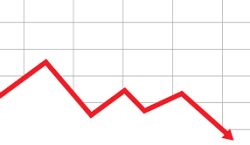

(Takudzwa Hanyani)
Breakfast has been described as the most important meal of the day, contributing substantially to daily nutrient intake and energy needs. It should be understood that breakfast kick starts metabolism and prepares individuals to meet the demands of the day in both the physical and psycho-social sense. The effect of breakfast on cognitive performance in the workplace is an issue which most Zimbabwean employees fail to understand. Research suggests that skipping breakfast detrimentally affects problem solving, short-term memory, attention and episodic memory. Conversely, when adults consume breakfast performance is enhanced on measures of vigilance attention, arithmetic problem solving tasks, and logical reasoning.
Breakfast has been defined as “the first meal of the day.” In the Caribbean it is defined as a “midday meal”, for many households in Africa breakfast means porridge or cereal. However, that definition is quite limiting and not comprehensive.
Merging all these definitions, it is imperative to view breakfast as a morning and mid morning meal. However, should the content of breakfast be limited to sugary high energy meals only? In some households in Zimbabwe sadza and rice from the previous supper are served as breakfast. Essentially these meals are high in fibre, carbohydrates and vitamins which are recommended for the body even though irrelevant at this juncture of the day.
Most working adults view breakfast as a children’s meal which can only be consumed by school-going age groups. However, breakfast is perhaps the most important meal of the day for all age groups regardless of occupation.
Even though easy breakfast options to a productive morning are limited in Zimbabwe nevertheless different ways can be used to prepare a small meal. Resource limitation should not be used as an excuse to skip breakfast.
How can you make breakfast a part of your day?
Start small
– If you do not feel hungry in the morning, start small with a piece of bread/toast.
– Once you get used to eating earlier in the morning, start adding more to your morning meal e.g. a glass of water or juice and breakfast after an hour or so when your appetite increases.
Pack and go
– If you can not eat before leaving for work, have plenty of easily packable foods on hand to take with you.
– Try bread, yoghurt, biscuits or oatmeal/cereal.
Plan ahead
– If you need to wake up a bit earlier to have time to enjoy a healthy breakfast, it is worth it.
– Keep quick options handy for when you are running out of time
Even though the relationship between breakfast intake and disease onset is not known it is important for managers and supervisors to encourage employees to consume morning meals. The latest science research shows that on the one hand, breakfast eaters are more likely to reach recommended levels of important micronutrients and workplace efficiency, while on the other hand eating breakfast can help reduce the risk of serious health problems such as obesity, cardiovascular disease and diabetes. Working populations in Zimbabwe are the backbone to economic productivity and it is essential for these groups to responsibly become more active in intake of morning and midmorning meals. Make breakfast an essential component to kick starting a productive day.
– Takudzwa Hanyani is a Corporate Wellness Consultant and Certified Wellness Coordinator writing in his own personal capacity. Feedback:takudzwa.hanyani87@gmail.com Blog: www.wellnesspeople.wordpress.com